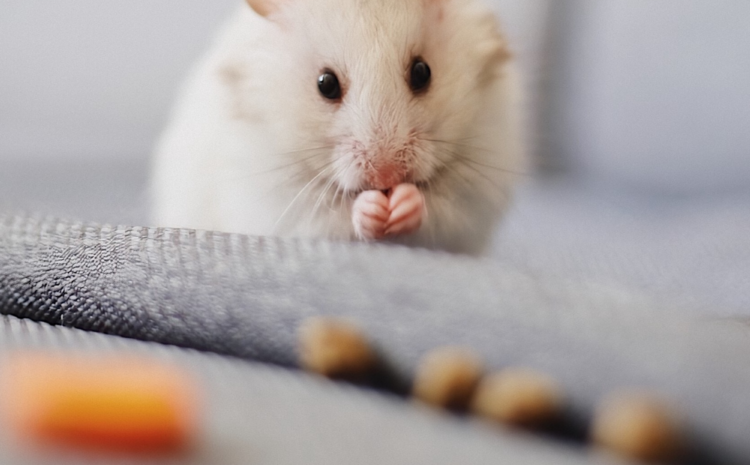
From Nuisance to Nightmare: The Full Guide to Mice Infestation in Homes
Mice might seem like harmless, tiny creatures, but when they invade your home, they can quickly become a nightmare. These small rodents can cause significant damage to your property, spread diseases, and create a highly unsanitary living environment. Understanding how to detect, prevent, and eliminate mice infestations is crucial for maintaining a safe and healthy home. This comprehensive guide will walk you through everything you need to know about dealing with mice in your residence.
The Stealthy Intruders: Understanding Mice Behavior
Mice are nocturnal and highly adept at staying hidden, making them difficult to detect until they’ve established a presence. They can squeeze through tiny openings, as small as a quarter-inch, and are excellent climbers and jumpers. Their primary motivations are food, shelter, and warmth, which makes homes an attractive target, especially during colder months.
Recognizing the Signs of Infestation
Early detection is key to preventing a full-blown infestation. Here are some common signs that mice might be sharing your living space:
- Droppings: Small, dark, rice-shaped droppings near food sources, in drawers, cupboards, or along baseboards.
- Gnaw Marks: Mice need to constantly gnaw to keep their teeth sharp. Look for chewed wires, wood, or plastic.
- Nesting Materials: Shredded paper, fabric, or insulation materials indicate that mice are building nests.
- Unusual Noises: Scratching or scurrying sounds in the walls, ceilings, or under floors, especially at night.
- Grease Marks: Oily rub marks left by mice fur along walls and baseboards.
- Tracks and Footprints: Small footprints or tail marks in dusty areas.
Mice can pose serious health risks and cause extensive property damage. Here’s how:
Health Risks
- Disease Transmission: Mice are carriers of various diseases, including Hantavirus, Salmonella, and Lymphocytic Choriomeningitis Virus (LCMV). Their droppings and urine can contaminate food and surfaces, leading to serious illness.
- Allergies and Asthma: Mouse droppings and dander can trigger allergic reactions and exacerbate asthma symptoms, particularly in children.
Property Damage
- Structural Damage: Mice can chew through wood, drywall, and even concrete, compromising the structural integrity of your home.
- Electrical Fires: Gnawing on electrical wires can create fire hazards.
- Contaminated Food: Mice will chew through packaging to get to food, leading to wastage and contamination.
Preventing a mice infestation is much easier than dealing with an existing one. Here are some effective prevention strategies:
Seal Entry Points
Inspect your home for potential entry points and seal them. Pay attention to gaps around doors, windows, utility pipes, and vents. Use materials like steel wool, caulk, and hardware cloth to block these access points.
Maintain Cleanliness
Keep your home clean and free of food debris. Store food in airtight containers, clean up spills immediately, and dispose of garbage regularly. Mice are less likely to stay where food is scarce.
Remove Clutter
Reduce clutter in and around your home to eliminate hiding spots. Keep storage areas organized and off the floor, and dispose of unnecessary items that could serve as nesting materials.
Proper Landscaping
Maintain your yard by trimming bushes, cutting grass, and keeping woodpiles away from the house. This reduces the likelihood of mice finding shelter near your home.
If you suspect you have a mice infestation, it’s essential to act quickly. Here are the steps you should take:
DIY Methods
- Traps: Snap traps, live traps, and glue traps can be effective. Place them in areas where you’ve noticed activity.
- Baits and Poisons: Use these with caution, especially if you have pets or children, as they can be hazardous.
Professional Pest Control
For extensive infestations or if DIY methods fail, it’s best to call in the professionals. Pest control experts have the tools and knowledge to handle mice infestations effectively and safely. They can identify entry points, remove existing mice, and provide long-term solutions to prevent future infestations.
A mice infestation can escalate from a minor inconvenience to a significant problem if not addressed promptly. By understanding the behavior of mice, recognizing the signs of an infestation, and taking proactive prevention measures, you can protect your home and health. If you do find yourself facing an infestation, don’t hesitate to seek professional help. Remember, the sooner you act, the easier it will be to reclaim your home from these unwelcome guests.
